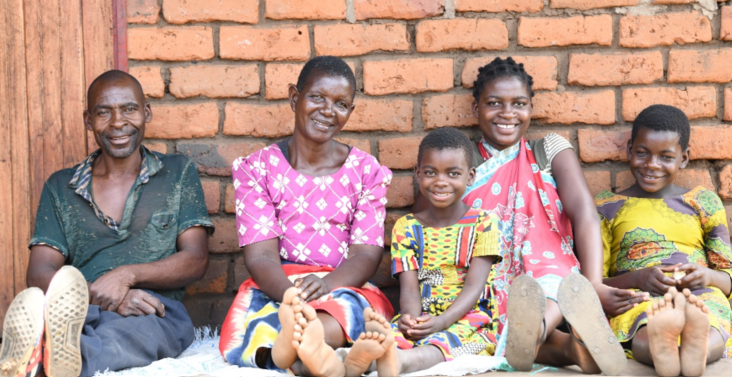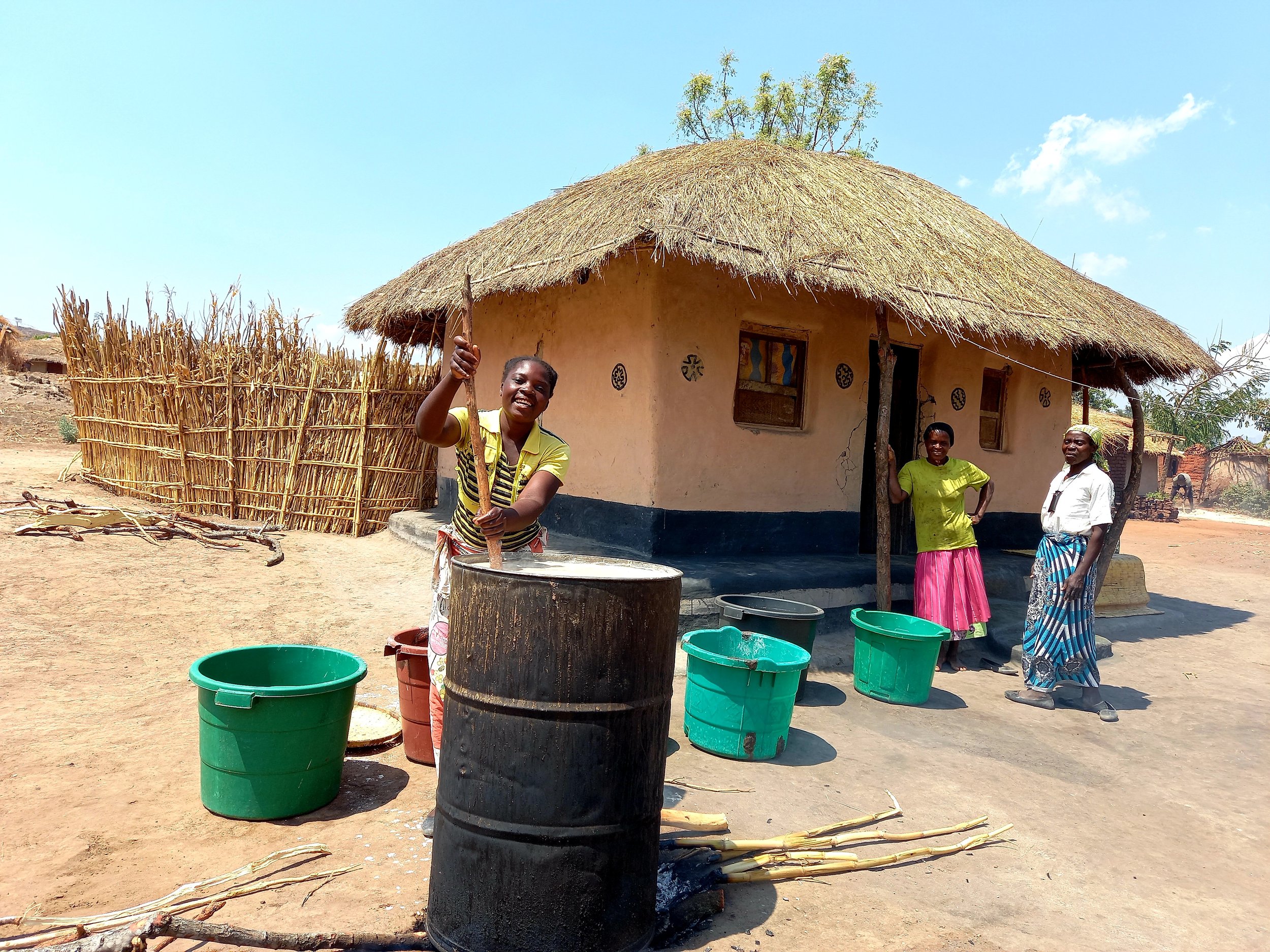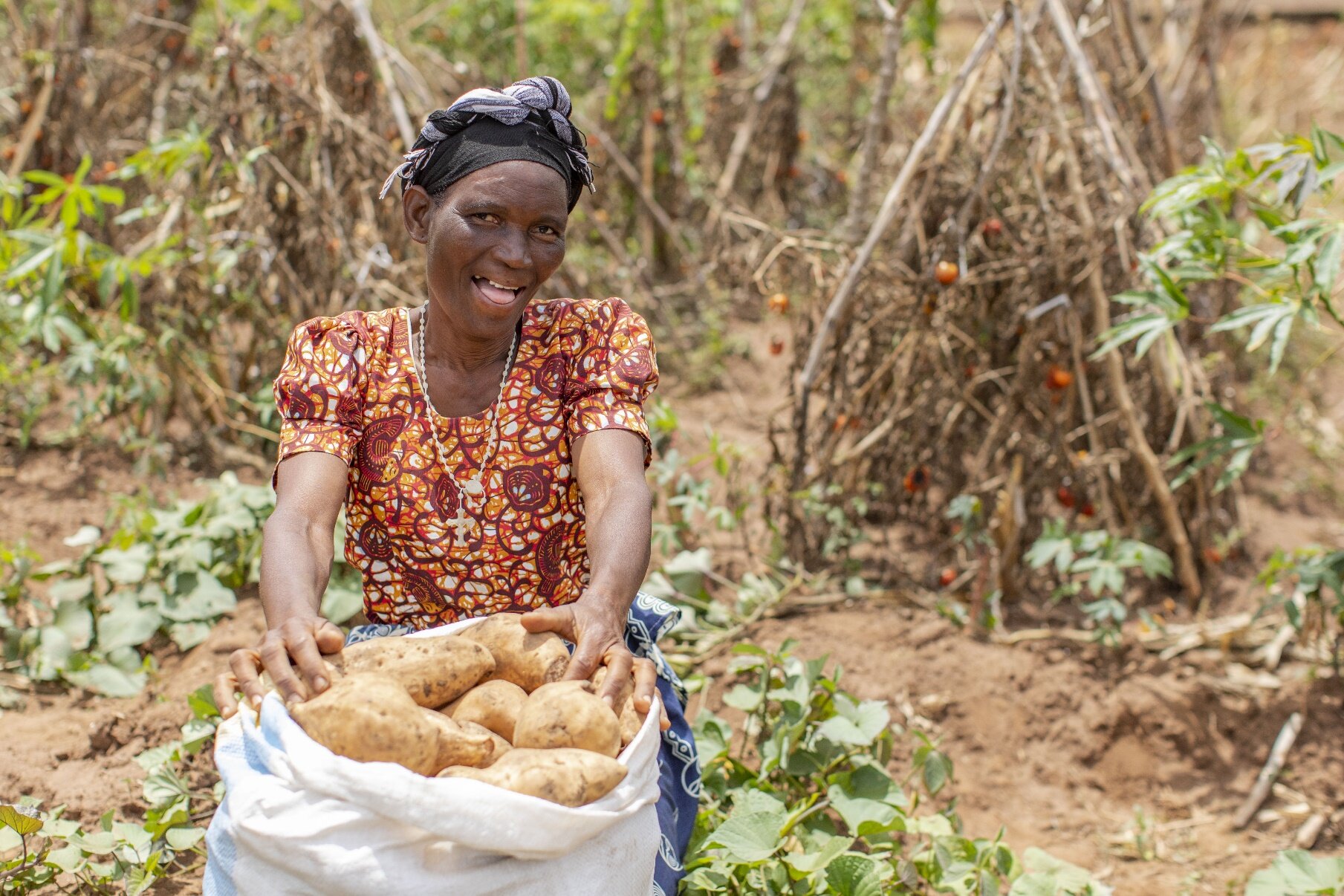Meet the Jairos family. They live in a rural village in Traditional Authority Chikowi Zomba, Malawi, and are members of the Government of Malawi’s Social Cash Transfer (SCT) Programme.
Image: The Jairos family sit outside their newly-built home
Like most other families in the village, until recently, the Jairos family experienced chronic food insecurity and lived in a small, grass-thatched house that used to leak when it rained. Despite being members of the SCT Programme, the children were unable to go to school because the money often came in too late to pay the school fees. Sometimes, the family was forced to borrow money with high interest rates, which left them with huge loans to pay.
Due to a lack of fertiliser and hybrid seeds, the family were never able to harvest enough crops from their small piece of land. Both Mr and Mrs Jairos were accustomed to using the small amounts of money they made without consulting the wider family.
United Purpose, through the Pro-Resilience Action (ProAct) and Social Support for Resilience (SoSuRe) projects funded by the European Union, is taking a ‘household approach’ to improving families’ farming businesses in Zomba district. This approach promotes inclusive decision making between all household members – whether children or adults, men or women – and equitable access to, and control over, resources and assets. This comes about through empowering all household members by building their knowledge and skills.
Through the help of mentors from the project, the Jairos family decided their ultimate mission was to build a decent house and ensure all the children could attend school.
The family started to put their plan into action back in 2019. They began by moulding bricks and buying cement and iron sheets. They also worked together to expand their farming land to grow more crops, started irrigation farming and put into practice improved farming methods promoted by the project. They experimented with growing different kinds of crops (such as tomatoes and cassava) and Mrs Jairos began participating in village savings and loans groups.
Image: Mr Jairos tending to the family’s goat
As a result, the family is now much better off. By 2021, they were able to grow enough food for everyone to eat. They can afford to buy decent clothes and they now have a solar panel for electricity and eight goats and four chickens. Two of their children, Aubrey and Martha, are in secondary and primary school respectively, as the family can now afford to plan and pay for the school fees.
Aubrey said: “I want to do my studies up to university level so that I can be independent and support my family.”








